You may have all the technical skills in the world, but soft skills are what will set you apart in your career.
Developing soft skills like communication, teamwork, and problem-solving can make a huge difference in achieving career success.
These skills help you work better with others, manage your time effectively, and adapt to new challenges.
Imagine excelling in meetings because you can speak clearly and confidently, or being a team player who always finds a way to collaborate well with others.
These abilities are what employers look for. By improving your soft skills, you open doors to new opportunities and promotions.
Don’t worry if you don’t feel confident in these areas yet. You can learn and improve your soft skills with simple practices and a bit of effort.
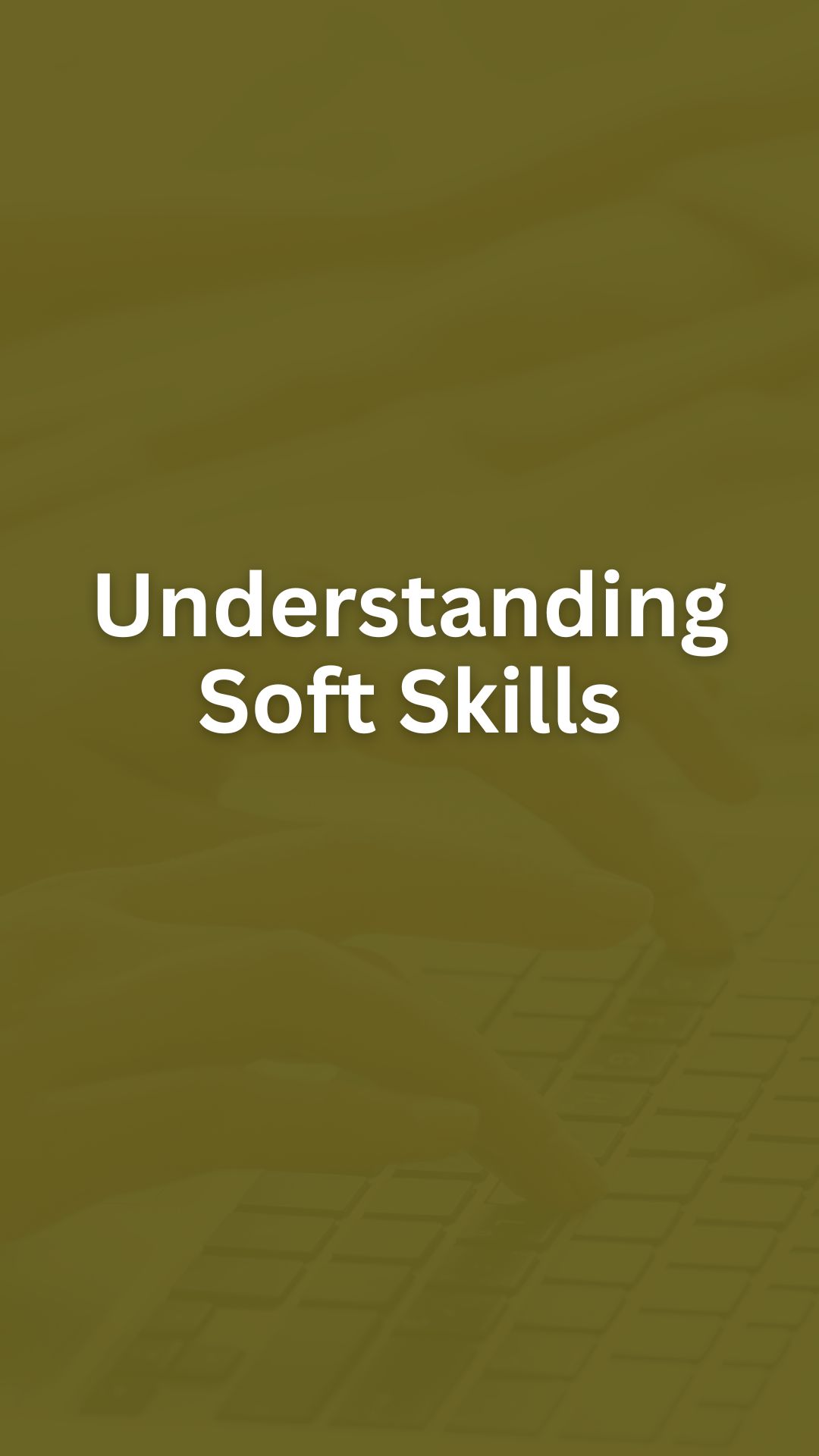
Understanding Soft Skills
Soft skills are essential for career success. They include emotional intelligence, communication, and teamwork. These skills help you connect with others and work well in different situations.
The Importance of Emotional Intelligence
Emotional intelligence is about recognizing your feelings and the feelings of others. It’s important because it helps you manage stress, stay positive, and build strong relationships.
When you know your emotions, you can better handle conflicts and stay calm under pressure. By understanding others’ emotions, you can be more empathetic and supportive. This understanding improves teamwork and leads to better workplace harmony.
Improving emotional intelligence involves self-awareness, self-regulation, motivation, empathy, and social skills.
So, make sure to practice active listening, pay attention to nonverbal cues, and respond thoughtfully.
Communication: A Key Competency
Good communication is essential for sharing ideas clearly and effectively. It includes speaking, writing, and listening. Making sure messages are clear helps others understand you better.
Active listening is crucial. It shows you value others’ input and builds trust. Clear communication also helps prevent misunderstandings and resolves conflicts quickly.
Practice active listening by giving full attention to the speaker, nodding, and making eye contact.
Also, be clear and concise in your speech. Use positive body language to reinforce your words.
The Role of Teamwork
Teamwork makes tackling projects and challenges easier and more efficient. Working well with others means sharing tasks, supporting teammates, and valuing everyone’s ideas.
Being a good team member involves cooperating, communicating, and solving problems together. It also means respecting diverse perspectives and contributions. Successful teamwork leads to achieving goals faster and more creatively.
To enhance teamwork, prioritize open communication and be reliable.
Also, participate actively in team activities and offer help when needed. Celebrate team achievements and learn from setbacks together.
Creating a positive team environment makes work enjoyable and productive. So, practice these teamwork principles to advance your career and contribute to shared success.
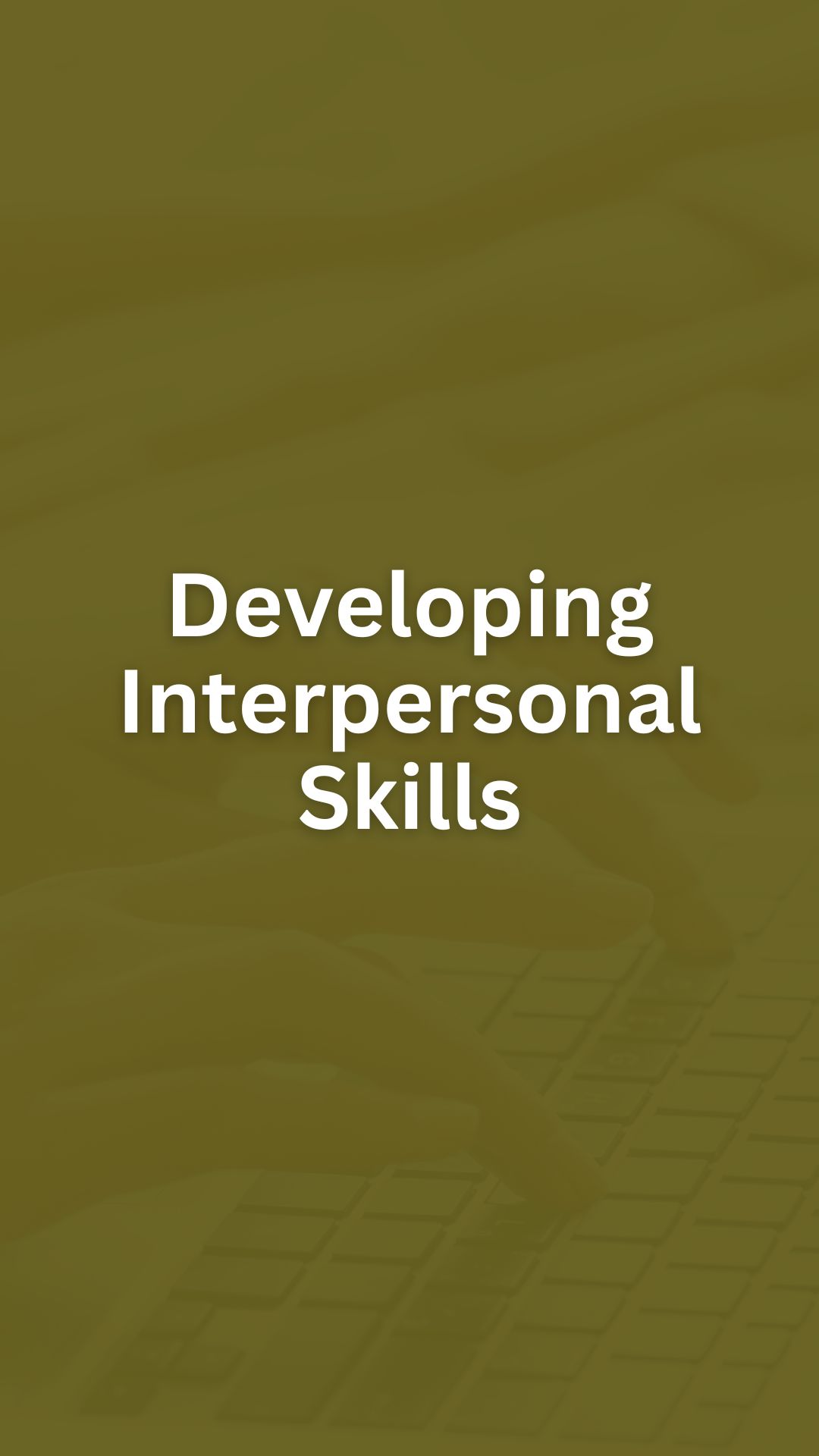
Developing Interpersonal Skills
Learning to interact well with others can make a big difference in your career. From listening effectively to resolving conflicts and building relationships, you’ll find practical tips to help you succeed.
Effective Listening Techniques
Effective listening is about more than hearing words. It’s about understanding what others are saying and showing them that you care.
Start by giving your full attention. Put down your phone, close your laptop, and make eye contact. Nod and use small verbal cues like “I see” or “Go on” to show you’re engaged.
Ask questions if you don’t understand something. Clarifying questions such as “Can you explain what you mean by that?” can be very helpful.
And don’t forget to summarize what the other person said to confirm you got it right, like saying, “So, you mean…”
Avoid interrupting, too. Let the other person finish their thoughts before you respond. This shows respect and makes the conversation more productive.
Effective listening helps build trust and makes others feel valued.
Conflict Resolution Strategies
Conflicts are an inevitable part of any workplace, but handling them well can set you apart.
Start by staying calm. Taking deep breaths can help you keep your cool. Listen to understand the other person’s perspective.
Use “I” statements to express your feelings without blaming the other person. For example, say, “I feel frustrated when meetings start late” instead of “You always start meetings late.”
This way, you avoid sounding accusatory and focus on how you feel.
Try to find common ground, too. Look for solutions that work for both parties. A compromise where both parties give a little is often the best solution.
When you handle conflicts well, you show that you’re a team player and a problem-solver.
Building Strong Work Relationships
Strong work relationships make the office more enjoyable and productive.
Start by being approachable. Smile, say hello, and be open to small talk. Learn about your coworkers’ interests and ask about their weekends or hobbies.
Offer help when you can. If a coworker is swamped, ask if they need a hand. Even a small gesture can go a long way in building goodwill.
Also, give credit where it’s due. Recognize and praise others for their hard work.
Participate in team activities and social events to strengthen bonds outside of work tasks.
Building trust and rapport with your coworkers creates a positive atmosphere and fosters collaboration.
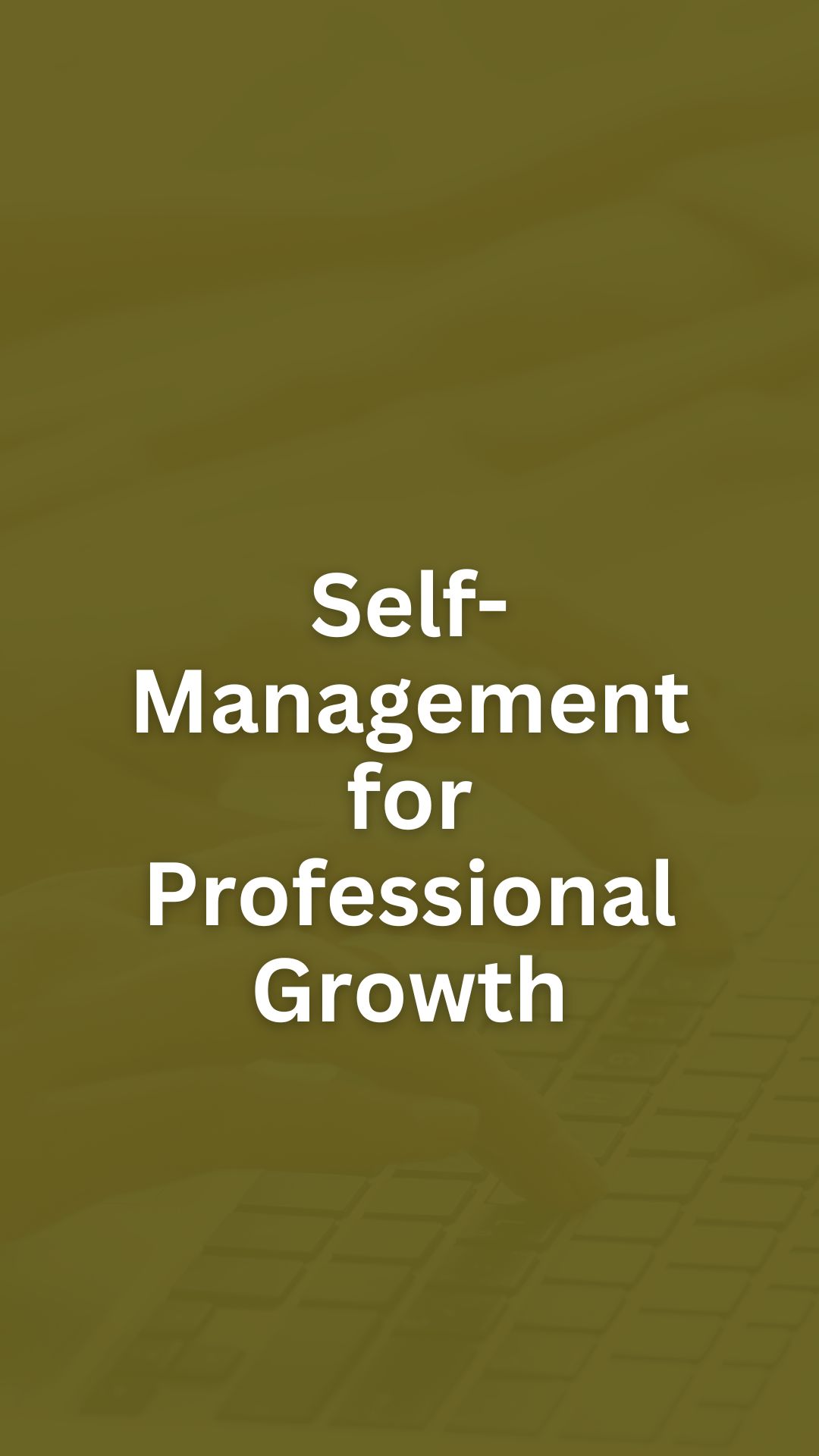
Self-Management for Professional Growth
Mastering self-management can greatly benefit your career. Key areas include managing your time wisely, handling stress effectively, and adapting to changes at work.
Time Management Essentials
Time management helps you prioritize tasks and meet deadlines.
Start by making a daily to-do list and setting clear, achievable goals. Use a planner or digital calendar to keep track of your tasks and appointments.
Break tasks into smaller steps. This makes them more manageable and less overwhelming. Even with unexpected tasks, you’ll stay on track.
Remember to allocate time for breaks to stay refreshed and avoid burnout.
Eliminate distractions like unnecessary phone notifications or social media. Finding a quiet spot can also boost your focus.
Stress Management for Productivity
Stress can impact your productivity and health. Recognizing stress triggers and finding ways to cope is important.
Deep breathing exercises or short meditation breaks can help calm your mind.
Another tip is to maintain a healthy work-life balance. Make sure to set boundaries for your work hours and take time to relax and pursue hobbies.
Physical activities like a short walk or exercise can also reduce stress levels significantly.
Communicate openly with your coworkers and supervisors if you’re feeling overwhelmed. They can offer support and possibly adjust your workload.
Adaptability in the Workplace
Being adaptable means you can handle changes and new challenges at work.
This is crucial as workplaces and technology constantly evolve.
Keep learning new skills and stay updated with industry trends. Attend workshops, take online courses, or read relevant articles.
When faced with change, stay positive and open-minded. Instead of resisting, look at it as an opportunity for growth and new experiences.
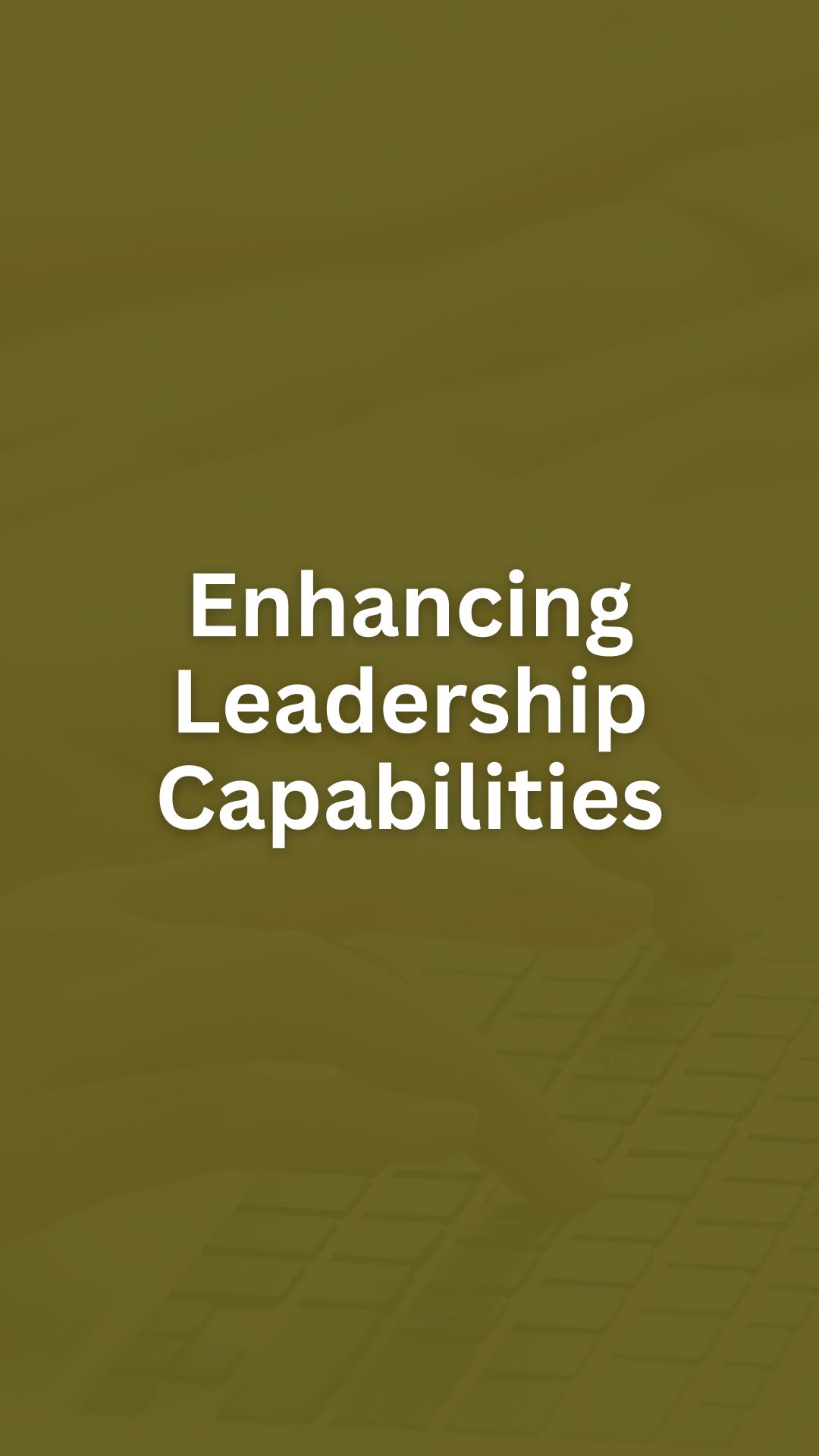
Enhancing Leadership Capabilities
Showing strong leadership skills can boost your career. Taking charge and guiding others effectively is key to success.
Visionary Thinking
Visionary thinking is about seeing the future possibilities. A visionary leader can predict trends and inspire others with a clear, exciting vision.
Start by keeping up with industry trends. Read books, attend conferences, and network with industry experts. This helps you identify where the market is going.
Encourage brainstorming sessions, too. Let team members share their ideas freely. This fosters creativity and innovation.
Share your vision with the team. Be clear and passionate. A shared vision gives everyone a common goal to work towards.
Inspiring and Motivating Teams
To inspire and motivate your team, you need to be a role model. Show enthusiasm and commitment. Your attitude will influence others.
Recognize and reward hard work. A simple “thank you” or a small bonus can boost morale. Everyone likes to feel appreciated.
Set clear goals and be transparent. Let your team know what is expected of them and how their work contributes to the bigger picture. This builds trust and boosts motivation.
Listen to your team’s concerns, too. Show empathy and provide support. This creates a positive work environment where everyone feels valued.
Making Decisive Decisions
Being decisive is crucial for a leader. It shows confidence and helps your team move forward with clarity.
Gather information before making a decision. Evaluate the pros and cons carefully. Make sure you understand the potential outcomes.
Once you decide, act quickly. Delays can cause uncertainty and stress within the team.
Communicate your decisions clearly. Explain your reasoning and how it aligns with the team’s goals.
Be prepared to adapt, too. If new information comes up, be ready to reassess and change course if needed. Flexibility is key to effective leadership.

Creative Problem-Solving
Creative problem-solving involves using new and innovative techniques to find solutions and make decisions. It’s about thinking outside the box and coming up with unique ideas.
Fostering Innovation
Start by being open to new ideas and perspectives. Encourage brainstorming sessions where everyone can share thoughts without judgment. Use mind mapping to visually organize ideas and see connections between them.
Experimentation is key. Try different approaches and learn from what works and what doesn’t. Embrace failure as a learning opportunity.
Another tip is to stay curious. Ask questions and seek knowledge from various sources. This can lead to unexpected insights that fuel creativity.
Strategic Thinking Skills
Strategic thinking involves planning and foreseeing potential outcomes.
Begin by setting clear goals. Understand what you want to achieve and why.
Break down complex problems into smaller, manageable parts. Analyze each part and look for patterns or trends.
Use logic and evidence to support your decisions. Stay focused on the bigger picture while managing the details. Keep refining your strategy based on feedback and results.
Effective Communication
Effective communication can boost your career by helping you express ideas clearly, connect with others, and present yourself confidently.
Public Speaking Mastery
Public speaking can be daunting, but it is crucial for sharing your ideas.
Start by practicing your speech in front of a mirror or with friends. Pay attention to your pace, tone, and body language.
- Preparation: Know your material well. Research your topic thoroughly and anticipate potential questions.
- Engage Your Audience: Make eye contact, ask questions, and use gestures to keep your audience interested.
- Feedback: After your speech, ask for constructive feedback. This will help you improve for next time.
Writing with Clarity
Clear writing helps convey your message without confusion. Focus on these key points:
- Simple Language: Use words that are easy to understand. Avoid jargon and complex terms.
- Structure: Organize your writing into clear sections with headings and bullet points.
- Proofread: Always review your work to fix grammar mistakes and unclear phrases.
Example:
| Original Sentence | Improved Sentence |
|---|---|
| “We utilized various strategies…” | “We used different strategies…” |
Non-Verbal Communication Cues
Non-verbal cues play a big role in how others perceive you.
- Eye Contact: Maintain steady eye contact to show confidence.
- Posture: Stand or sit up straight. Good posture makes you appear more confident and engaged.
- Gestures: Use hand gestures to emphasize points, but don’t overdo it. Keep them natural.
Tip: Pay attention to others’ non-verbal cues to improve your own communication skills.
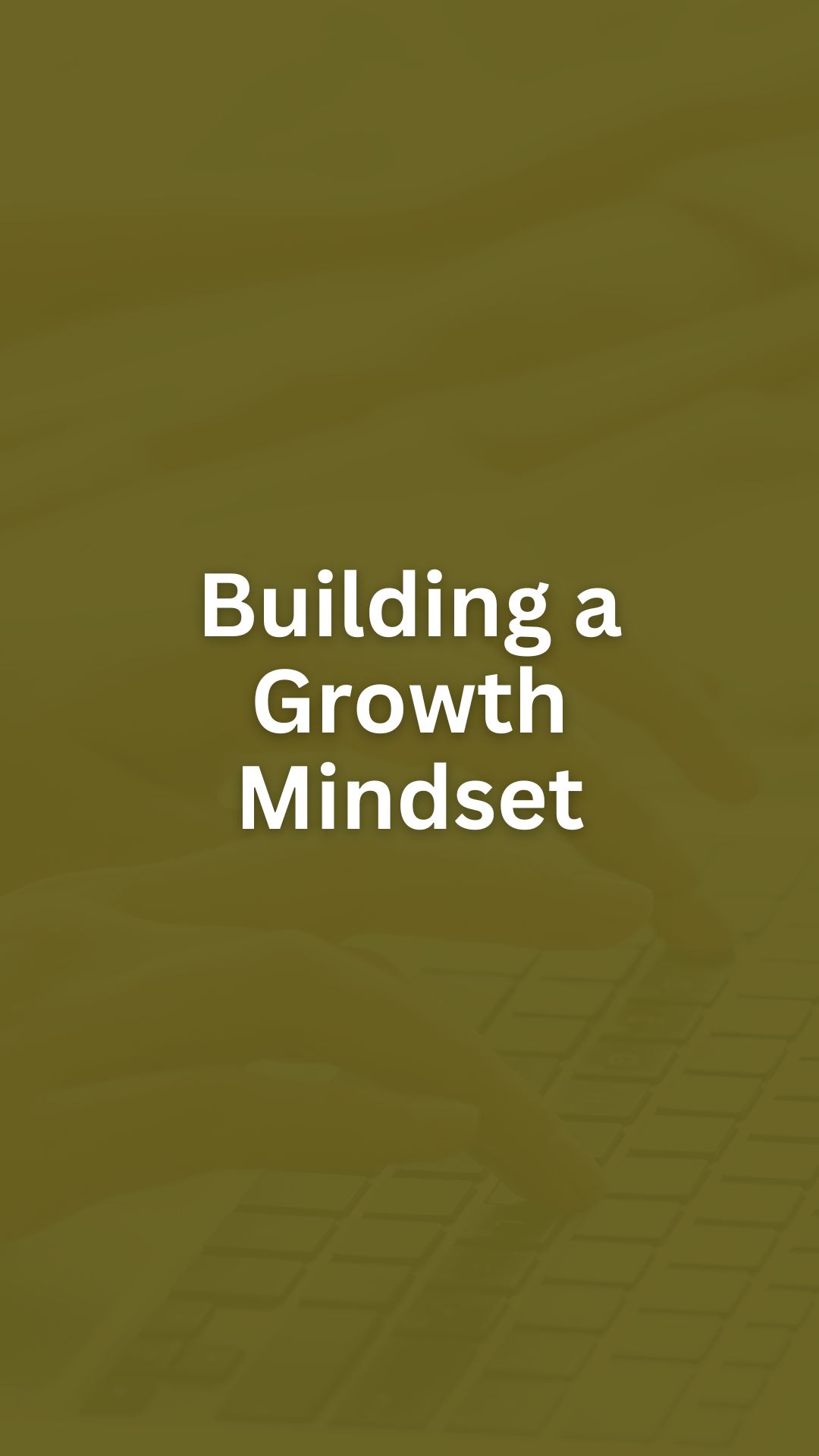
Building a Growth Mindset
To succeed, you need to build a mindset that welcomes learning, loves feedback, and isn’t afraid to fail. Here’s how to develop that mindset.
Continuous Learning and Development
Always seek new knowledge and skills. It’s important to stay curious and never stop learning.
Make a habit of reading books, attending workshops, and taking online courses. This keeps your mind sharp and ready for new challenges.
Try setting small, achievable goals. This helps you see progress and keeps you motivated.
Write down what you learn and reflect on it regularly. This simple practice will make learning a natural part of your daily routine.
Embracing Feedback for Improvement
Feedback is a valuable tool for growth. When someone gives you feedback, listen carefully and view it as a gift rather than criticism.
This helps you understand your strengths and areas for improvement.
Ask for feedback often. This shows you’re committed to personal growth.
Use the feedback to make changes and track your progress. This way, you turn every piece of advice into a stepping stone for success.
Overcoming Fear of Failure
Failure is part of the journey to success. Instead of fearing it, embrace it.
Remember, every mistake is a lesson in disguise. When you fail, take a moment to analyze what went wrong and how you can improve.
Develop resilience by bouncing back quickly from setbacks. This keeps you moving forward even when things get tough.
Celebrate your efforts and small wins along the way. This builds confidence and a positive attitude towards challenges.

Navigating Workplace Dynamics
Understanding how to navigate workplace dynamics is essential for career success. You need to understand the culture of your organization, be politically savvy, and embrace diversity and inclusion to thrive.
Understanding Organizational Culture
The first step is to understand your company’s culture. Every workplace has its own set of values, norms, and unwritten rules.
Pay attention to how people communicate, dress, and interact. Are meetings formal or casual? This can tell you a lot about what is valued in your workplace.
Get to know your colleagues and watch how they approach their jobs. Are they expected to work late hours? Is there a focus on teamwork or individual achievements?
This knowledge can help you fit in better and know what to expect.
Sometimes, it’s good to ask questions. Listen carefully when others talk about the company’s history or goals. This will give you insight into the broader organizational culture.
Knowing this can help you make informed decisions and stay aligned with the company’s direction.
Political Savviness in the Office
Being politically savvy means understanding the power structure in your workplace and knowing how to navigate it.
This isn’t about manipulation. It’s about being aware of how things get done and who has influence. Who are the decision-makers? Recognize who holds formal and informal power.
Build relationships with these key people. You can do this by finding opportunities to work on projects with them or even just engaging in casual conversations.
Networking is crucial. Attend company events, join committees, and don’t shy away from introducing yourself to new people.
Stay neutral in conflicts and avoid gossip. Being seen as a reliable and trustworthy person can make you stand out in a positive way.
Remember, political savviness is about being strategic, not playing games.
Harnessing Diversity and Inclusion
Embracing diversity and inclusion means recognizing and valuing the differences in your workplace. This can be differences in race, gender, age, or even thought.
Accepting these differences can make your team stronger and more creative.
Participate in diversity and inclusion initiatives within your company. This could mean joining an employee resource group or attending training sessions.
Educate yourself about the benefits of a diverse workplace and learn how to be an ally to your colleagues.
Respect everyone’s unique perspectives. When in meetings or group discussions, make sure everyone has a chance to speak and contribute.
Championing these values can create a better work environment for everyone and might also enhance your reputation as a leader in your organization.

Advancing Career Through Networking
Networking is a key factor in career advancement. It opens doors to new opportunities, helps you build relationships, and expands your knowledge. Let’s explore some important aspects of professional networking.
Professional Networking Strategies
Attend industry events, conferences, and seminars. This helps you meet people in your field.
Always bring business cards and be ready to introduce yourself. Join professional organizations related to your career. This shows you are serious and helps you connect with like-minded professionals.
Set clear goals for your networking efforts. Do you want advice, mentorship, or job leads? Knowing your goals helps you stay focused.
Follow up with contacts you meet. Send a thank-you email or message. This keeps the connection alive and shows your commitment.
Leveraging Social Media
Use LinkedIn to build your network. Connect with colleagues, classmates, and leaders in your industry.
Share articles, comment on posts, and join groups related to your field. This increases your visibility and establishes you as an active professional.
Twitter can also be powerful. Follow industry experts and participate in Twitter chats. This helps you stay updated and get noticed.
Use Twitter’s search function to find discussions relevant to your interests. Share your thoughts and engage with others.
Instagram might seem casual, but it’s useful too. Follow companies you admire and thought leaders.
Post about your professional achievements and industry events you attend. Use relevant hashtags to reach a broader audience.
The Art of Small Talk
Small talk is a valuable skill in networking. It breaks the ice and helps you make connections.
Start with simple questions. Ask about their role, how they got into their field, or their favorite part of their job. Be genuine and show interest in their answers.
Practice listening more than speaking. This helps you learn about the other person and shows you value their input.
Mention common interests or shared experiences. This makes the conversation more personal and memorable.
Prepare a few topics in advance. Current events in your industry, popular books, or recent developments are great conversation starters.
This helps avoid awkward silences and keeps the dialogue flowing.

Personal Branding for Success
Creating a strong personal brand can greatly impact your career. It involves crafting your professional identity and managing your online presence to stand out and advance.
Crafting a Professional Identity
Your professional identity is how you present yourself in the workplace.
Start by defining your skills, strengths, and values. Think about what makes you unique.
Develop a personal tagline that captures your essence in a few words.
Next, be consistent. Your behavior, attire, and communication should reflect your brand. This includes how you interact with colleagues and clients.
Networking is key. Attend industry events and conferences. Share your expertise and learn from others.
Building relationships helps reinforce your brand in the professional community. Remember, a strong personal identity sets you apart and makes you memorable.
Online Presence for Career Advancement
Your online presence is crucial for career success. Start with a LinkedIn profile.
Ensure it is complete and reflects your professional identity. Use a professional photo and write a compelling summary.
Keep your social media accounts clean and professional. Employers often check these.
Share content related to your field to show your knowledge and interest.
A personal website can be another great tool. It can include your resume, portfolio, and blog.
Regularly update your online profiles with your latest achievements and skills.
Engage with online communities related to your industry. Comment on blogs, join discussions, and network with peers.
A positive online presence boosts your professional image and opens doors to new opportunities.
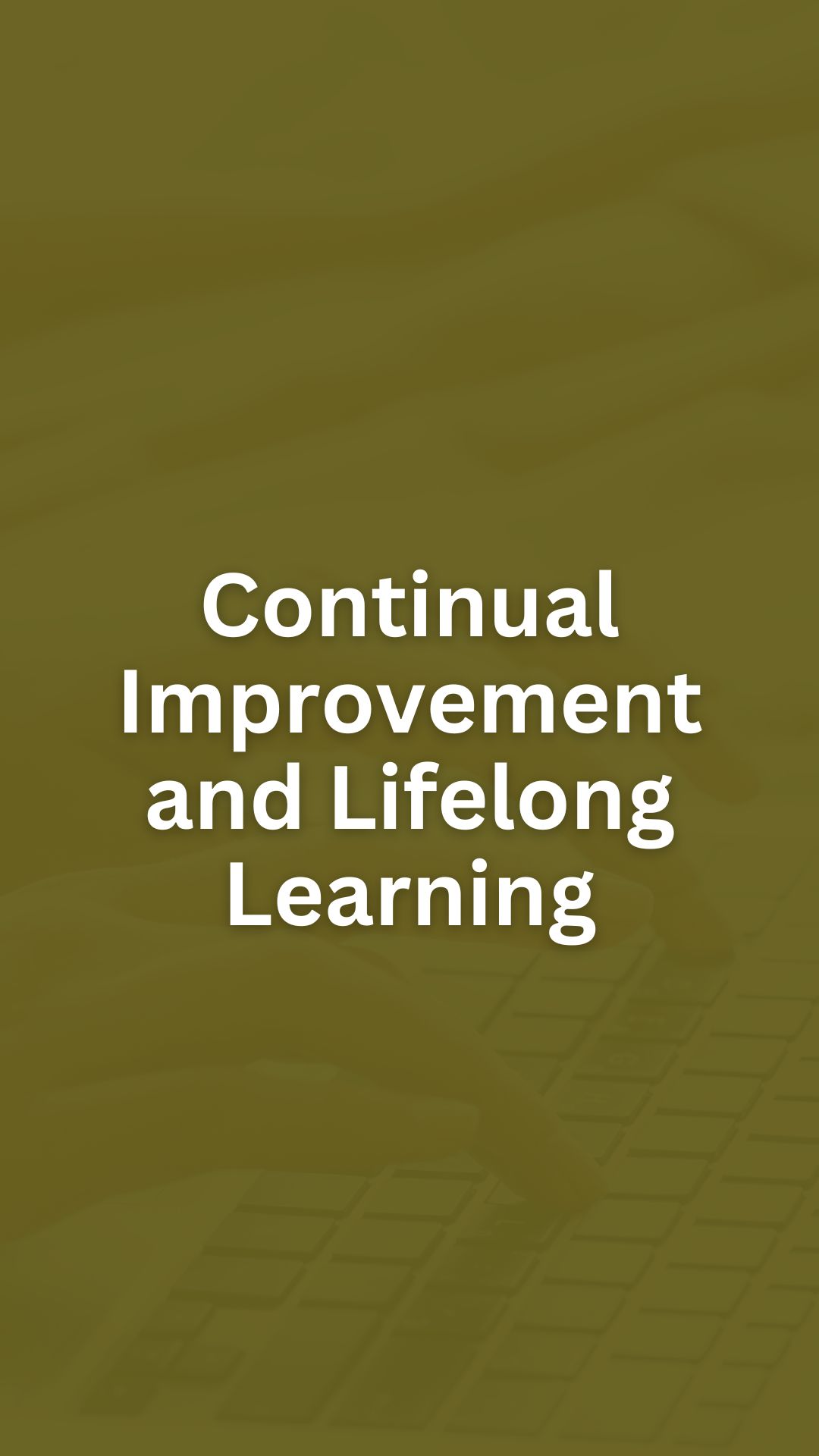
Continual Improvement and Lifelong Learning
To stay ahead in your career, it’s important to focus on lifelong learning. This means always being open to new knowledge and opportunities.
Why it Matters:
- Keeps your skills fresh
- Makes you more adaptable
- Boosts your confidence
Ways to Keep Learning:
- Take Online Courses: Websites like Coursera, Udemy, or Khan Academy offer many courses.
- Read Books and Articles: Find materials related to your field.
- Attend Workshops and Seminars: These are great for learning new skills and networking.
- Join Professional Groups: Being part of groups can offer new insights.
Setting Goals:
- Short-term: Finish one online course each month.
- Long-term: Earn a certification or degree.
Tracking Progress:
| Goal | Deadline | Status |
|---|---|---|
| Complete a course | End of June | In Progress |
| Read one book | End of July | Not Started |
| Attend a seminar | End of August | Not Started |
Tips:
- Stay Curious: Always look for new things to learn.
- Be Consistent: Make learning a part of your routine.
- Ask Questions: Don’t be afraid to seek advice or help.

Frequently Asked Questions
Knowing how to enhance your interpersonal skills, demonstrate problem-solving, and adapt professionally are key to career success. Continuous learning also plays a big part.
What strategies can enhance my interpersonal skills for professional advancement?
Practice active listening. Show genuine interest in others’ ideas and feedback. Develop empathy by understanding colleagues’ perspectives.
Which soft skills are essential for leadership and how can I cultivate them?
Focus on communication, empathy, and decision-making. Attend workshops or read leadership books. Seek mentorship from experienced leaders.
How can I effectively communicate in a team setting to improve my career prospects?
Encourage open dialogue. Be clear and concise when sharing ideas. Actively involve team members in discussions.
What are the best ways to demonstrate problem-solving abilities in a work environment?
Identify issues quickly. Propose logical solutions backed by data or research. Take initiative to implement fixes and review their effectiveness.
How do I develop strong work ethics and adaptability to thrive professionally?
Set clear goals and stay committed. Be punctual and reliable. Embrace changes and learn new skills continuously.
How can continuous learning and development of soft skills impact career growth?
Taking courses or workshops keeps you updated. Improved soft skills make you more versatile. This opens up new opportunities.